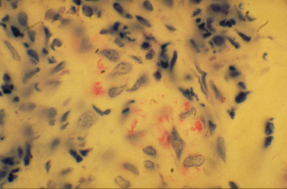Emergency contraception drug, flu vaccines approved
Recalls, warnings, approvals and other regulatory news.
Recalls, warnings
A warning that the drug lamotrigine (Lamictal), approved to treat seizures and bipolar disorder, can cause aseptic meningitis.

A warning about the potential for developing eosinophilic pneumonia during treatment with daptomycin (Cubicin), an intravenous antibacterial drug, based on six adverse events reported from 2004 to 2010. Physicians should monitor patients on the drug for signs and symptoms of eosinophilic pneumonia.
A warning that Evamist, which contains estradiol, an estrogen hormone, can cause adverse effects in children and pets if they are inadvertently exposed through skin contact with patients using the drug.
A voluntarily recall of two lots of ibuprofen lysine (NeoProfen) injection that failed to meet a visible particulate quality requirement. These two lots are the only lots currently available to prescribers and therefore the recall will result in a temporary drug shortage.
A recall of French Engage introducer devices by St. Jude Medical due to the potential for separation of the shaft (sheath) from the hub or for a break in the hub assembly that could result in a potentially life-threatening episode of bleeding.
A voluntary recall of certain lots of Ciaglia Blue Rhino and Ciaglia Blue Dolphin percutaneous tracheostomy introducer sets and trays that contain a Covidien 6PERC or 8PERC Shiley tracheostomy tube due to the product's cuff not holding air, adversely affecting ventilation.
An expanded voluntary recall of high-pressure medical cylinders containing oxygen, nitrogen, air, nitrous oxide, carbon dioxide, and drug mixtures, distributed by Airgas South, Inc., as a precautionary measure after an initial complaint concerning a contaminated cylinder.
Approvals
Ulipristal acetate (ella), prescription-only tablets for emergency contraception, which prevent pregnancy when taken orally within 120 hours (five days) after a contraceptive failure or unprotected intercourse.
The first generic version of enoxaparin sodium injection (Lovenox), an anticoagulant drug used to prevent deep venous thrombosis.
Vaccines for the 2010-2011 influenza season in the United States, which contain three strains: A/California/7/09 (H1N1)-like virus (pandemic [H1N1] 2009 influenza virus), A/Perth /16/2009 (H3N2)-like virus, and B/Brisbane/60/2008-like virus.
Miscellaneous
The FDA proposed to withdraw approval of midodrine hydrochloride (ProAmatine), used to treat orthostatic hypotension, because required post-approval studies to verify the clinical benefit of the drug have not been done. Patients who currently take this medication should not stop taking it but should consult their health care professional about other treatment options, the FDA said. The agency is working with the drug's manufacturers to develop an expanded-access program to allow patients who currently receive the drug to continue to receive it. This is the first time the FDA has issued such a notice for a drug approved under its accelerated approval regulations.
The FDA issued an initial communication about the risk of adverse events with long-term use of retrievable inferior vena cava (IVC) filters, recommending that removal of the filters be considered as soon as protection from pulmonary embolism is no longer needed. Since 2005, the agency has received 921 adverse event reports about IVC filters, of which 328 involved device migration, 146 involved embolizations, 70 involved perforation of the IVC, and 56 involved filter fracture.
The FDA reminded health care professionals that nimodipine capsules should be given only by mouth or through a nasogastric tube, never by intravenous administration. The agency continues to receive reports of intravenous nimodipine use, with serious, sometimes fatal, consequences. In 2006, a boxed warning was added to the drug packaging to warn against intravenous use. The prescribing information also provides clear instructions on how to remove the liquid contents from the capsules for nasogastric tube administration in patients who are unable to swallow. The instructions recommend that the syringe used for withdrawal of capsule contents be labeled with “Not for IV Use.”




